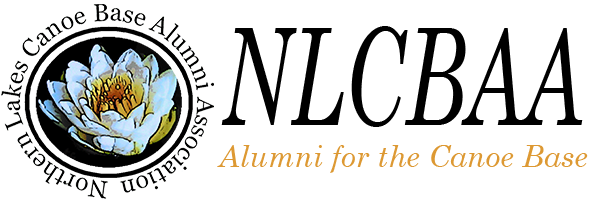Frequently Asked Questions (FAQ) |
How old do I have to be to go on a canoe trip?
Youths older than 12 years, or who have finished the 6th grade, can go on one of our regular trips. We offer Touch the Wilderness, Canoe Base Sampler Day, or Canoe Base Visit/Free Paddle for younger scouts and families (see more at About Our Trips). You may also want to explore summer camp. Find out more at our council's website: girlscoutslp.org.
Can adults go on a canoe trip?
Yes, adults who are part of a Girl Scout troop are welcome to accompany their troop on a canoe trip. We also offer all-women trips, which can be really wonderful experiences.
Can adult men go on a canoe trip?
Yes, adult men who are part of a Girl Scout troop are welcome to accompany their troop on a canoe trip.
Can youths identifying as boys go on a canoe trip?
Our program is not designed for all-male or mixed-gender groups. Youths identifying as girls or nongendered youths are welcome to go on a canoe trip. We can recommend as excellent options Boy Scouts of America's Charles L. Sommers Canoe Base, also on Moose Lake, or the YMCA of the North's Camp Widjiwagan, north of Ely, MN, for youths identifying as boys.
Do I have to be a Girl Scout to go on a canoe trip?
You don't need to be a Girl Scout to sign up for a canoe trip. If you are not a Girl Scout now, you will register when you sign up. That means paying the annual membership fee of $45 for youths or $25 for adults. All of our participants must be registered Girl Scouts.
How much does a canoe trip cost?
It's important that Girl Scout canoe trips are affordable. See 2024 costs below:
| Trip Length |
2024 Cost |
| 4 Days (first day on base, 3 days on water) |
$320 |
| 6 Days (first day on base, 5 days on water) | $455 |
| 8 Days (first day on base, 7 days on water) | $565 |
| 11 Days (first day on base, 10 days on water) | $740 |
Girl Scout canoe trip costs are all-inclusive. You only need to provide the personal equipment on the Packing List. If you can't borrow these items, shop for them at secondhand or thrift stores to keep your costs down, but please make sure they fit you properly. The canoe base also has a stock of wet boots, trail clothes, raingear, and sleeping bags, but you will want to reach out to the Summer Director in advance of your trip before depending on these supplies.
You will also need to arrange your transport to and from the canoe base 17 miles outside of Ely, MN (or we can arrange to meet in Ely), except for Destinations trips, which meet in Duluth, MN. We may be able to coordinate getting participants from area airports or bus stations to and from the canoe base.
Scholarship funding is also available to cover trip costs for those in financial need. Contact Melissa Garza, the Director of Property & Program at our council to apply: mgarza@girlscoutslp.org.
How do I get to the Northern Lakes Canoe Base?
By car, you'll reach Ely either on Highway 169 from Virginia, MN, or Route 1 from Finland, MN. Take Highway 169 north (E. Sheridan St. in town). You will pass the US Forest Service Ranger Station at 1393 MN Highway 169, where we meet participants to caravan to the canoe base, just north of Ely. After about 16 miles, look for Canadian Border Rd on the left, with a long row of mailboxes, which is a well kept, unpaved road suitable for all vehicles. Turn onto it and continue about 1.6 miles to a place where the road has three branches; take the central one and reach our Program Center in about 300 yards. You can park along that driveway or staff may show you additional parking. Our neighbors are called Canadian Border Outfitters (the right branch of the three) which you can navigate to with a smartphone. However, cell phone service will probably drop out between Ely and the canoe base. The trip from Ely takes half an hour.
